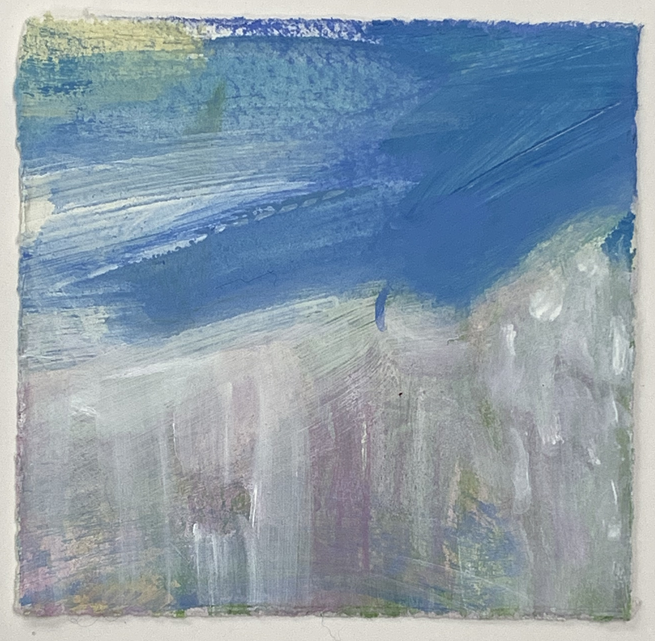 Jean Wilkey
Jean Wilkey
My Thirty-Four Days in an Iranian Prison*
by HANNAN HASHEMI
On 5 August 2022, The Toronto Star published a piece in which my professor asked this question: “Where is Hannan Hashemi?” I am writing now to tell your readers where I, a twenty-year-old Bahá’í university student from Shiraz, Iran, found myself in the final weeks of August and first weeks of September that year.
On July 19th I was arrested and taken to a detention center where I was left in a pitch-black room, blindfolded, then interrogated relentlessly for hours. As members of Iran’s largest non-Muslim religious minority, Bahá’ís are routinely arrested, detained, and imprisoned on a host of pretexts. I was arrested for teaching virtues to children, using books published by the government.
My belongings, including hair ties, were confiscated and my glasses would have been, too, had I not begged to keep them. Once my interrogation ended, I was handed a prison uniform — a blouse and blue pants that were so big on me I had to hold them up to keep them on. I was taken to a holding area where I was watched by surveillance cameras that were positioned in all four corners of the ceiling. A female officer arrived and asked me to take off my clothes. I tried to explain that my clothes had already been confiscated, but she insisted that I remove my prison uniform, right down to my underwear.
I had never in my life felt so humiliated. I wanted to cry but I held back my tears. I knew this was just the beginning; I had to stay strong. To my surprise, that night I was able to sleep and I was glad the next morning because when the interrogation resumed, the pressure was intense. So it went on, day after day, week after week, as I was transported from one detention center to another, from interrogation to interrogation, always blindfolded, always accompanied by armed guards, with only a handful of chances to bathe and forced to sustain myself on food that was barely edible. Once I found a cockroach in the water tank that supplied water to the cells in my unit.
After thirty-four days of this harrowing ordeal, I was released, but my suffering was not over. Wherever I went, whatever I did, I was haunted by a lingering fear that was as vague as it was powerful. I rejected the fashionable clothes I once enjoyed, exchanging them for the loose-fitting garments I now felt compelled to wear. I had left my cell, but I felt the officers and the surveillance cameras were still watching my every move, looking on even as I undressed.
For months I struggled to cry; I had held back my tears for so long that they would no longer come. It took weeks of talking with counselors for me to unravel the ball of grief so tightly wound inside me. Over time, I learned about the experiences of other prisoners of conscience in Iran and this gave me solace and the determination to endure. I received supportive messages from far and wide, including the information that news of my disappearance and unjust detainment had been published in your newspaper. I began to feel I was not alone.
I am writing to tell your readers where I was on those dark days of 2022 and to thank you for sharing my story, which is the story of so many members of the Bahá’í Faith in Iran today. My hope is that the story of where I was will help your readers understand how such prisoners of conscience in Iran pass their days. I hope, too, that by sharing my story, the families of other victims will see that there is a way through the darkness and they are not alone.
*The article was published in The Toronto Star on January 11, 2024.

